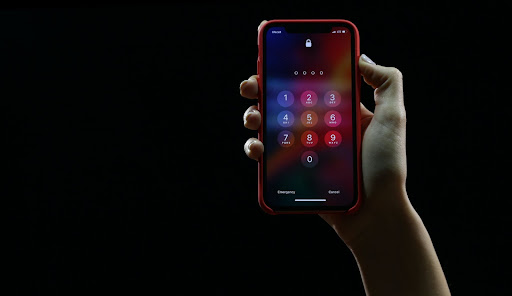How to Prevent Spyware From Getting Onto Your Phone
Spyware or spy apps have become increasingly common in recent times. Hackers often use them to get sensitive and private information from the mobiles and computers of unsuspecting victims, and sometimes even to monitor larger commercial organizations. Sometimes, partners also use it to monitor their husbands without them knowing as you can see in this article, and this often leads to a significant breach of privacy. As a result, it’s essential that you know the steps to prevent spyware from getting onto your phone. This guide will tell you what spy apps can do, and then dive into how you can prevent them from getting installed on your phone.
What is Spyware?
Spyware is a type of malware that’s used to get access to all the data on the target mobile or laptop. They monitor all the activities on the device, giving the user access to all the information on it. Here are some of the most common ways in which spy apps can monitor your mobile device –
- They can monitor calls – Spy apps can log and help you monitor all incoming and outgoing calls on a target device.
- Read text messages – Spy apps are capable of logging all incoming and outgoing messages, along with details of the phone numbers on both sides and details of the media files shared in them.
- Track GPS locations – Spy apps can also track the target device’s GPS locations in real-time by giving the user accurate coordinates of where it is and at what time.
- Monitor all social media applications – Spyware is capable of monitoring and giving the user full access to the target’s social media conversations and activities. These include monitoring for all common apps like WhatsApp, Facebook, Instagram, Snapchat, Tinder, and more.
- Log all keystrokes – One of the most dangerous features of spy apps is that many of them can also log all the keystrokes entered on the target device. This means that anything the target types gets recorded. This can give the user access to the target’s passwords, credit card data, and much more, which can prove to be very dangerous.
How to Prevent Spyware From Getting On Your Phone

If you are worried about spyware, you may be wondering how to prevent it on your phone. While it is not a perfect solution, it is very effective. There are a couple of steps you can take to make sure that your phone is safe. Using the factory reset feature is a drastic step you can take to remove unwanted applications. This method will erase your phone’s data and apps, so you should back up your data before resetting your phone.
Disable Administrator Rights On Your Phone
The first step is to disable all administrator rights for your phone. Malicious apps often change your settings to become administrators. You should go to the Settings menu and look for the Administrator icon. Click on this icon and uncheck any applications that appear to have the administrator role. Next, you need to perform a full system scan. This will remove the malware from your phone. You can then go back to the normal mode.
Uninstall Suspicious or Malware-infected Apps
Secondly, you must uninstall any suspicious or malware-infected apps. You need to uninstall these apps as soon as possible. You must also reset your password and add extra security measures to your phone.
Don’t Install Apps From Outside the Play Store.
If you use Android phones, it is essential to make sure that you don’t install any apps from outside the official Google Play Store. For iOS users, you can check for spy apps in the Storage permissions area. If you are an Android user, you should also check your device’s permissions to see if there are any suspicious apps. If you find suspicious applications, uninstall them. In addition to uninstalling them, you should also make sure that you can access the internal storage of your phone.
Install an Anti-Malware Program
Anti-malware programs are a great way of creating a firewall of sorts on your device and preventing malware from getting installed. They work by scanning your device for malware, detecting and removing them, and repairing any damage they might have caused to your mobile device or even PC, for that matter. A good anti-malware program is Kaspersky.
Create Unique Passwords and Use a Password Manager

Another important step is to create unique passwords for all your social media accounts and others. With the number of accounts most people tend to have on all kinds of websites online, it can become difficult to maintain a completely unique password for each. As a result, many people often tend to use different variations of the same password. While these can be convenient to remember, they can also make it easier for a hacker to get access to your accounts. The best passwords must be a combination of upper and lower case characters and also of numbers and alphabets. On the other hand, you can also use a good password manager like Keeper. Password managers make it easier by generating passwords for all your accounts, and you only need to remember a single password for the password manager itself.
Don’t Share Your Phone’s Password With Anyone.
Last but not least, you must always be cautious about who your share your phone’s password or that of your social media accounts with. This is because while you may trust someone, you never know if they intend on installing spyware or some other malicious program on your phone for some reason. As a result, the best precaution you can take is to always keep your phone in your sights, keep it password-protected, and not share these passwords with anyone at all.
In Conclusion
As you can see, there are quite a few steps involved in keeping your phone safe from spy apps. They’re crucial if you want to keep your data safe at all times. Tracking apps like these are highly capable, and tech websites like CellTrackingApps.com conduct in-depth research on their uses and functionality. You must educate yourself on how they work and implement the steps mentioned in this guide to protect your device at all times.
Check Next >https://www.neoadviser.com/modernized-data-cloud-system/

